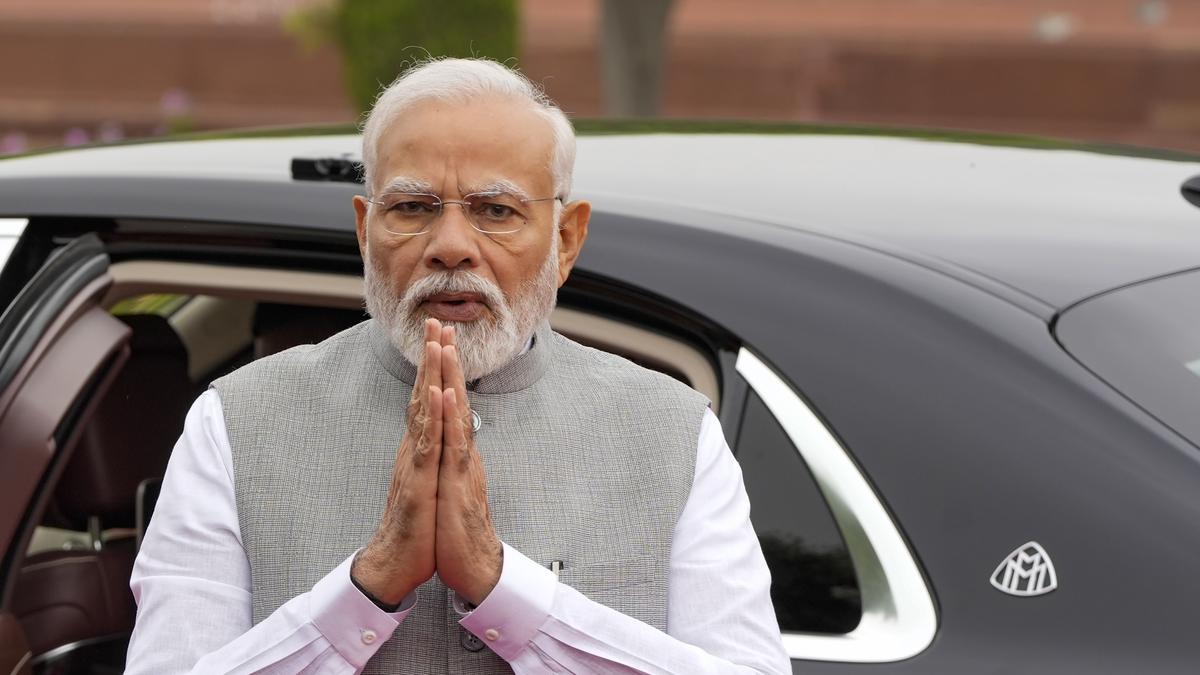
BJP’s Modi archive reveals PM’s early conversion to the power of surveys
The Hindu
BJP creating digital "Modi Archive" of anecdotes from people who interacted with the Prime Minister. Archive aims to articulate Modi's model of leadership and life
The year was 1991. The general election was around the corner, against the backdrop of mandir-Mandal politics, and electoral surveys had not yet been embraced by major political parties in a big way. Prime Minister Narendra Modi was then the general secretary (organisation) of the Gujarat BJP, when he initiated a novel move: a survey of the electorate on the candidates to be fielded by the BJP.
The survey found that BJP leader L.K. Advani, riding on the popularity of his Ram Rath Yatra as part of the Ramjanmabhoomi movement, had an approval rating of 85% in the Gandhinagar seat and that his candidature could impact seats around that area as well. Mr. Modi met Balasaheb Deoras, then-Sarsanghchalak of the RSS, showing him the survey results. In turn, the Sangh chief spoke to then-Prime Minister Atal Behari Vajpayee on the matter, urging him to adopt the new methodology of conducting surveys as well. Mr. Advani, who had been tipped to file his nomination papers from a seat in Madhya Pradesh, was rushed to Gandhinagar and won handsomely in that poll, remaining the MP from that seat for six terms. The BJP won 20 Lok Sabha seats from the State in that election.
Such anecdotes about Mr. Modi are now part of what the BJP is developing as a digital “Modi Archive”, with personal narratives from people who have interacted with him through his career from a humble pracharak to a Chief Minister to the Prime Minister of India.
“The effort is volunteer-driven, and was launched in March 2022. The aim of this effort is to put in one place not just testimonials about Prime Minister Modi but to articulate in a good way the Modi model of leadership and his life,” said a volunteer from the BJP engaged in collating the material.
According to the website developed for the archive, at least 7,000 to 8,000 such incidents and anecdotes — highlighting both personal and political facets of Mr. Modi — have been collected so far.
Though many books have been written on the Prime Minister since his ascent to national prominence, the collating of this material is a way to counteract negative perceptions and acts as a kind of fact-check on how events are recounted.
Apart from the 1991 incident, there is even earlier anecdotal evidence of Mr. Modi’s early conversion to the merits of holding surveys on important issues. Girish Bhatt, an RSS worker from Rajkot, recalls an incident from the 1970s: Mr. Modi had been appointing the baudhik pramukh of an RSS training camp in the city, and urged Mr. Bhatt and others to conduct a survey in the neighbourhood of the camp regarding perceptions about the organisation. These findings, from neighbourhood housing colonies, were then made into bar charts and shared, says Mr. Bhatt, though he could not exactly recall the results of that survey from half a century ago.











